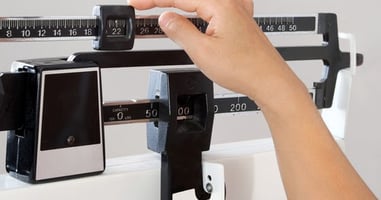A digital cognitive-behavioral therapy (CBT) intervention that includes personal coaching may help...
Internet-Based, Guided Self-Help Program May Benefit Some Patients With Binge-Eating Disorder
 |
Past studies show CBT can benefit patients with BED, but many patients do not have access to this specialized treatment, lead author Martina de Zwaan, M.D., of Hannover Medical School in Germany and colleagues wrote. “An alternative to traditional face-to-face CBT and a potential means to disseminate adequate treatment is structured self-help,” the authors suggested.
To compare the efficacy of internet-based, guided self-help (GSH-I) to traditional CBT, de Zwaan and colleagues randomly assigned 178 patients with full or subsyndromal BED to receive 20, 50-minute individual face-to-face CBT sessions or complete 11 Internet modules and receive weekly emails. Both treatments lasted four months, and the patients were assessed at the beginning, middle, and end of the treatment.
After the end of the treatment period, the authors found that CBT was more effective than GSH-I at reducing the number of binge eating days in the past four weeks (10.4 vs. 11.7 days, respectively) and increasing abstinence from binge eating (61% vs. 36%). CBT was also more effective at reducing overall patient psychopathology, as measured with the Eating Disorder Examination–Interview.
The superiority of CBT was still evident at a six-month follow-up visit; however, differences were no longer evident at a second follow-up visit 12 months later. At the 18-month follow-up visit, for example, binge-eating abstinence rates were 46% for CBT and 43% for GSH-I.
“Overall, our results suggest that face-to-face CBT is likely to be a better initial treatment option compared with GSH-I,” de Zwaan and colleagues wrote. “However, given that improvements were significant in both treatment conditions, the effect size of the difference of the main outcome between treatment conditions was small, and there were no statistical differences between the treatment conditions at 1.5 years after treatment, GSH-I remains a viable, low-threshold treatment alternative for this patient population, for example, in a stepped-care approach.”
For related information, see the Handbook of Assessment and Treatment of Eating Disorders.
(Image: iStock/izusek)





